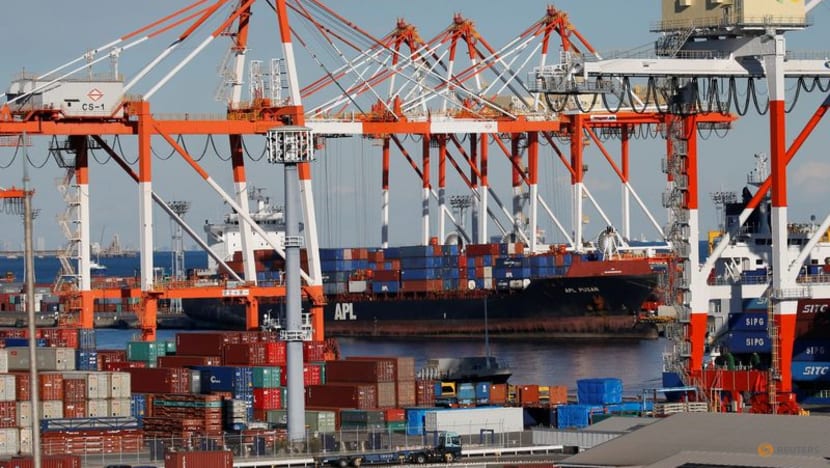Japan posts record trade deficit in August

Containers are seen at an industrial port in Yokohama, Japan, January 16, 2017. Picture taken on January 16, 2017. REUTERS/Kim Kyung-Hoon
TOKYO : Japan ran its biggest single-month trade deficit on record in August as imports surged on high fuel costs and a slump in the yen, exposing the economy's vulnerability to external price pressures.
The growing trade deficit highlights the fragile nature of Japan's economic recovery which has so far largely remained intact despite a high price tag firms are paying for imports that is aggravated by the yen's slide to a 24-year low and rising prospects of a global slowdown.
Imports jumped 49.9 per cent in the year to August, driven by costs of crude oil, coal and liquefied natural gas (LNG), and causing the trade deficit to swell to 2.8173 trillion yen ($19.71 billion), the biggest shortfall on record.
The gain in imports was bigger than a median market forecast for a 46.7 per cent rise in a Reuters poll and outstripped a 22.1 per cent year-on-year increase in exports in the same month, the Ministry of Finance data showed.
August's trade gap marked the 13th consecutive month of year-on-year shortfalls and was bigger than the 2.3982 trillion yen deficit expected in a Reuters poll.
The yen's fall by nearly 20 per cent over the past six months added to higher import costs.
By region, exports bound for China, Japan's biggest trading partner, grew 13.5 per cent year-on-year on stronger shipments of motor vehicles such as hybrid cars to the country.
Shipments to the world's biggest economy the United States expanded 33.8 per cent in August largely due to stronger motor vehicle and parts exports.
Oil imports from the United Arab Emirates and coal and LNG from Australia strongly drove up overall imports, the data showed.
Japan's economy grew for a third straight quarter in April-June, data last week showed, as the lifting of local COVID-19 restrictions boosted consumer and business spending.
Analysts say, however, that the country's recovery remains fragile as consumer and business activity face risks such as from a global growth slowdown and a tightening of monetary policy by many central banks around the world.
($1 = 142.9700 yen)









